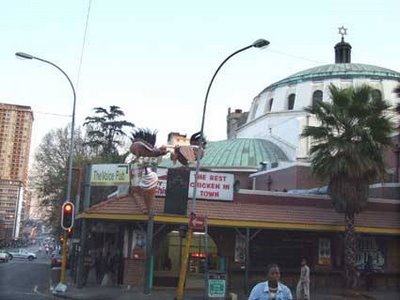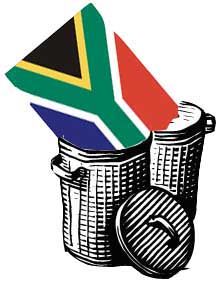OK or Greatermans?
Update: I bow to the seeminlgy better memory of people who have posted comments here: maybe it was the head quarters of Greatermans after all... I have changed the title and text accordingly.
I am still convinced I recall seeing OK Bazaars signs there when I used to drive past in the early 1980s. If anyone can shed any further light on this, I would appreciate it!
Old post text: If anyone oculdA comment posted here has said that the building which I have identified as the former OK Bazaars head office, is in fact the ex-head office of Greatermans.
I am almost 99% sure I remember it as a OK Bazaars office, which I used to drive past every day to work in Commissioner Street, but I will of course be happy to change it to Greatermans if anyone can help me right here. Please drop me an email if you can help.
Even if it is Greatermans, the pics will still stay on this page, because a Jewish family also owned Greatermans, by the way. I wonder what happened to the shops? Anyone know?
Old post text: If anyone oculdA comment posted here has said that the building which I have identified as the former OK Bazaars head office, is in fact the ex-head office of Greatermans.
I am almost 99% sure I remember it as a OK Bazaars office, which I used to drive past every day to work in Commissioner Street, but I will of course be happy to change it to Greatermans if anyone can help me right here. Please drop me an email if you can help.
Even if it is Greatermans, the pics will still stay on this page, because a Jewish family also owned Greatermans, by the way. I wonder what happened to the shops? Anyone know?








